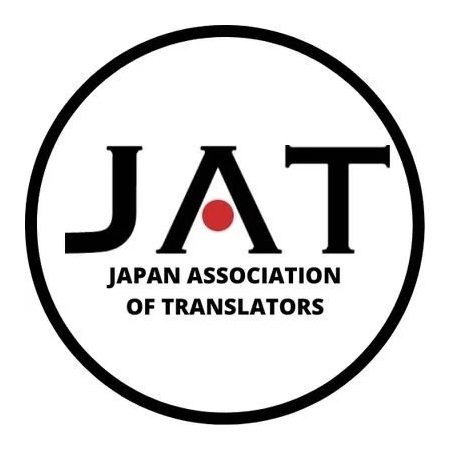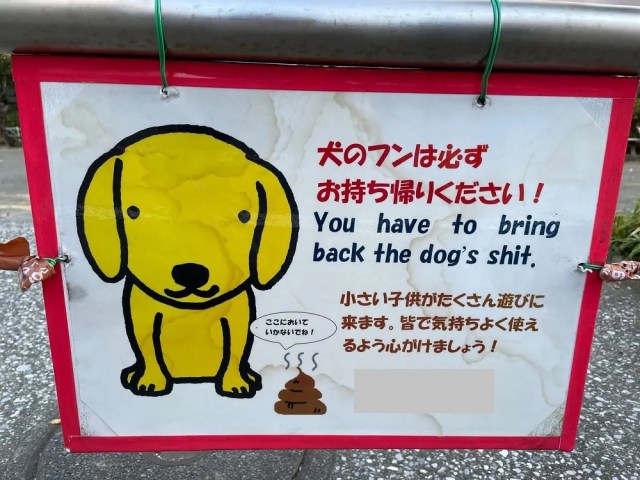
Organization releases statement outlining its opposition to machine translation.
For certain things in this world, it’s pretty hard to find someone who’s indifferent to them. Pineapple on pizza is something not a lot of people seem to just shrug their shoulders about and say “Eh, I could go either way,” as is the question of whether many-eyed Osaka-Kansai Expo mascot character Myaku Myaku is cute or creepy.
But few topics are quite as divisive these days as trying to use A.I. to replace a human doing professional work. Some say taking carbon-based lifeforms out of the equation makes work processes faster, more accurate, and more affordable, while others contend that there are things that just can’t be done by machines, no matter how much “learning” they’ve done, and so they absolutely require a human touch.
It’s a debate in which you won’t find many people with a middle-of-the-road mindset, and the Japan Association of Translators has made it very clear where they stand. Founded in 1985, the JAT is Japan’s largest translation/interpretation organization, and this week released a statement , in both English and Japanese, condemning the use of A.I. for manga translation.
The English statement reads:
Statement on the Public and Private Sector Initiative to Use AI for High-Volume Translation and Export of Manga
The Japan Association of Translators wishes to express its strong reservations regarding the public and private sector initiative to use AI for high-volume translation and export of manga.
First, in its current form, AI translation has yet to demonstrate the level of quality required to adequately portray nuance, cultural background, or character traits, which are critical to a work of fiction. Using machines to churn out mass quantities of translated works in a short amount of time (according to official announcements, 50,000 works in 5 years, with the shortest turnaround being 2 days per work) risks greatly diminishing the value of the work itself.
Moreover, excessive reliance on AI risks putting professional manga translators, who have supported the industry for years, out of work and turns valuable human resources into throw-away commodities. We are deeply concerned about the negligent disregard for so much accumulated experience and skill for the sake of cost reduction.
This is to say nothing of the risk posed by releasing hastily produced, low-quality translations into the market. Poor translations undermine consumer trust, opening the window for pirated versions to flourish. Given that manga is an important facet of Japanese culture and one of the many ways that people are first introduced to Japan, it is all the more important that the words we use to convey these stories are not undervalued.
Based on our experience and subject-matter expertise, it is the opinion of this organization that AI translation is extremely unsuitable for translating high-context, story-centric writing, such as novels, scripts, and manga. Quick and easy AI translation not only risks hurting the translation industry or the manga industry, it is not in the country’s best interests.
Our organization is deeply concerned that the public and private sector initiative to use AI for high-volume translation and export of manga will damage Japan’s soft power.
The Japan Association of Translators holds that expert translation by professional translators is essential to ensure that Japan’s exceptional manga continue to reach and engage readers around the world.
We strongly propose that now is the time for careful and constructive dialogue between manga artists, businesses (publishers), the government, translators, translator organizations, readers, and all stakeholders, to consider the appropriate use of AI and machine translation.
The statement doesn’t specify which A.I. translation initiatives it’s referring to, but there have been a number of manga publishers, of varying sizes, who have made murmurings about exploring ways to implement A.I. in translating content for non-Japanese readers. Regardless of the exact initiatives, though, the point stands that A.I. is highly unlikely to make for high-quality translations, especially from Japanese to English, and especially for manga.
Setting aside the complex question of how much localization is required or desirable when producing English versions of originally-in-Japanese manga, English and Japanese are, on a structural level, very different languages. Their base sentence structures differ greatly, and those differences get amplified when speaking either casually or theatrically, since their different base structures cause differences in what gets trimmed, tweaked, or added for comedic, dramatic, or emotional emphasis. That can frequently make literal translations weird and unwieldy, and sometimes even impossible.
Proper translation requires an understanding of nuance and context, especially since it’s common for Japanese speakers to omit things like the subject of a sentence when speaking. For example, asking someone “Anata wa doko ni ikimashita ka?”, literally “Where did you go?”, can sound worried or even accusatory, and the same goes for “Kanojo wa doko ni ikimashita ka?” (“Where did she go?”) or “Kare wa doko ni ikimashita ka?” (“Where did he go?”). Japanese speakers are much more likely to just say “Doko ni ikimashita ka?”, literally just “Where did go?”, relaying on the current situation or the preceding part of the conversation to make it clear to the listener who the question is about.
However, understanding nuance and context isn’t A.I.’s strong suit, so it’s going to struggle with phrases like “Doko ni ikimashita ka?”, which could potentially be translated any number of ways. Other possible stumbling blocks: Japanese has over a dozen ways to say “I,” more than 10 ways to say “father,” and at least three ways to say “love.” All of those convey different feelings and personalities, which need to be accounted for in a proper translation in ways beyond just translating the individual word.
▼ Machine translation is how you end up with translations like this.
All of these issues are going to be even bigger problems for A.I. when dealing with manga, as it’s a storytelling medium with a significant visual component. Much of the context that’s critical to the Japanese-to-English translation process is going to come from the artwork, something A.I. translation doesn’t reference and incorporate.
Ultimately the decision by publishers as to whether or not to use A.I. translations is likely to come down to consumer response, so if you’re on the side of the Japan Association of Translators in this debate, the best thing to do is to vote with your wallet and support manga translated by human professionals.
Source: PR Times
Top image: Pakutaso
Insert images: PR Times, SoraNews24
● Want to hear about SoraNews24’s latest articles as soon as they’re published? Follow us on Facebook and Twitter!
Follow Casey on Twitter, where none of his posts are written by A.I.



 YouTube’s AI Japanese translation calls for Jimmy Kimmel’s death on his own show【Video】
YouTube’s AI Japanese translation calls for Jimmy Kimmel’s death on his own show【Video】 AI is being used to write a new chapter in the God of Manga’s Black Jack series
AI is being used to write a new chapter in the God of Manga’s Black Jack series Pikachu in 1920s Tokyo images use A.I. to toss the Pokémon mascot 100 years into Japan’s past
Pikachu in 1920s Tokyo images use A.I. to toss the Pokémon mascot 100 years into Japan’s past Smash Bros. creator learns he can’t tweet carelessly, fans learn they can’t trust AI translations
Smash Bros. creator learns he can’t tweet carelessly, fans learn they can’t trust AI translations U.K. Foreign & Commonwealth Office’s cat charms and surprises Japan by Tweeting in Japanese
U.K. Foreign & Commonwealth Office’s cat charms and surprises Japan by Tweeting in Japanese Ramen for 99 yen?!? Best value-for-money noodles found at unlikely chain in Japan
Ramen for 99 yen?!? Best value-for-money noodles found at unlikely chain in Japan Viral Japanese cheesecake from Osaka has a lesser known rival called Aunt Wanda
Viral Japanese cheesecake from Osaka has a lesser known rival called Aunt Wanda Lawson adds doughnuts to its convenience store sweets range, but are they good enough to go viral?
Lawson adds doughnuts to its convenience store sweets range, but are they good enough to go viral? New Dassai sake parfait crashes reservation system in Japan
New Dassai sake parfait crashes reservation system in Japan Japanese Phantom Cheesecake: A sweet so popular 2,000 sold in ten minutes
Japanese Phantom Cheesecake: A sweet so popular 2,000 sold in ten minutes Tokyo’s Sakeice O’Choco alcoholic hot chocolate both does and doesn’t contain “sake”
Tokyo’s Sakeice O’Choco alcoholic hot chocolate both does and doesn’t contain “sake” Fives places around Japan to appreciate the plum blossoms this season
Fives places around Japan to appreciate the plum blossoms this season Osaka icon loses legs, restaurant says famous crab is exhausted
Osaka icon loses legs, restaurant says famous crab is exhausted Sento bathhouse gets a new lease on life as a Tokyo cafe and office space
Sento bathhouse gets a new lease on life as a Tokyo cafe and office space Which convenience store onigiri rice balls are the most popular? Survey reveals surprising results
Which convenience store onigiri rice balls are the most popular? Survey reveals surprising results Starbucks Japan releases first-ever Hinamatsuri Girls’ Day Frappuccino
Starbucks Japan releases first-ever Hinamatsuri Girls’ Day Frappuccino Japanese restaurant chain serves Dragon Ball donuts and Senzu Beans this spring
Japanese restaurant chain serves Dragon Ball donuts and Senzu Beans this spring Highest Starbucks in Japan set to open this spring in the Tokyo sky
Highest Starbucks in Japan set to open this spring in the Tokyo sky Japan Extreme Budget Travel! A trip from Tokyo to Izumo for just 30,000 yen [Part 1]
Japan Extreme Budget Travel! A trip from Tokyo to Izumo for just 30,000 yen [Part 1] Japan has only one airport named after a samurai, so let’s check out Kochi Ryoma【Photos】
Japan has only one airport named after a samurai, so let’s check out Kochi Ryoma【Photos】 Japan Extreme Budget Travel! A trip from Tokyo to Izumo for just 30,000 yen [Part 2]
Japan Extreme Budget Travel! A trip from Tokyo to Izumo for just 30,000 yen [Part 2] Japan’s craziest burger chain takes menchi katsu to new extreme levels
Japan’s craziest burger chain takes menchi katsu to new extreme levels Japanese drugstore sells onigiri at pre-stupid era prices, but how do they compare to 7-Eleven?
Japanese drugstore sells onigiri at pre-stupid era prices, but how do they compare to 7-Eleven? Yakuzen ramen restaurant in Tokyo is very different to a yakuza ramen restaurant
Yakuzen ramen restaurant in Tokyo is very different to a yakuza ramen restaurant Tokyo Skytree turns pink for the cherry blossom season
Tokyo Skytree turns pink for the cherry blossom season Japan’s newest Shinkansen has no seats…or passengers [Video]
Japan’s newest Shinkansen has no seats…or passengers [Video] Starbucks Japan releases new sakura goods and drinkware for cherry blossom season 2026
Starbucks Japan releases new sakura goods and drinkware for cherry blossom season 2026 Foreigners accounting for over 80 percent of off-course skiers needing rescue in Japan’s Hokkaido
Foreigners accounting for over 80 percent of off-course skiers needing rescue in Japan’s Hokkaido Super-salty pizza sends six kids to the hospital in Japan, linguistics blamed
Super-salty pizza sends six kids to the hospital in Japan, linguistics blamed Starbucks Japan unveils new sakura Frappuccino for cherry blossom season 2026
Starbucks Japan unveils new sakura Frappuccino for cherry blossom season 2026 Foreign tourists in Japan will get free Shinkansen tickets to promote regional tourism
Foreign tourists in Japan will get free Shinkansen tickets to promote regional tourism The 10 most annoying things foreign tourists do on Japanese trains, according to locals
The 10 most annoying things foreign tourists do on Japanese trains, according to locals Take a trip to Japan’s Dododo Land, the most irritating place on Earth
Take a trip to Japan’s Dododo Land, the most irritating place on Earth Naruto and Converse team up for new line of shinobi sneakers[Photos]
Naruto and Converse team up for new line of shinobi sneakers[Photos] Is China’s don’t-go-to-Japan warning affecting the lines at a popular Tokyo gyukatsu restaurant?
Is China’s don’t-go-to-Japan warning affecting the lines at a popular Tokyo gyukatsu restaurant? Survey asks foreign tourists what bothered them in Japan, more than half gave same answer
Survey asks foreign tourists what bothered them in Japan, more than half gave same answer Japan’s human washing machines will go on sale to general public, demos to be held in Tokyo
Japan’s human washing machines will go on sale to general public, demos to be held in Tokyo Starbucks Japan releases new drinkware and goods for Valentine’s Day
Starbucks Japan releases new drinkware and goods for Valentine’s Day We deeply regret going into this tunnel on our walk in the mountains of Japan
We deeply regret going into this tunnel on our walk in the mountains of Japan Studio Ghibli releases Kodama forest spirits from Princess Mononoke to light up your home
Studio Ghibli releases Kodama forest spirits from Princess Mononoke to light up your home Major Japanese hotel chain says reservations via overseas booking sites may not be valid
Major Japanese hotel chain says reservations via overseas booking sites may not be valid Put sesame oil in your coffee? Japanese maker says it’s the best way to start your day【Taste test】
Put sesame oil in your coffee? Japanese maker says it’s the best way to start your day【Taste test】 No more using real katana for tourism activities, Japan’s National Police Agency says
No more using real katana for tourism activities, Japan’s National Police Agency says Kyoto study finds nearly 500 translation errors for foreign tourists, new guidelines released
Kyoto study finds nearly 500 translation errors for foreign tourists, new guidelines released Japanese mayor suddenly speaks fluent English with AI video that surprises even him
Japanese mayor suddenly speaks fluent English with AI video that surprises even him Learn Japanese through ridiculous manga: Narutoe 【Episode #2】
Learn Japanese through ridiculous manga: Narutoe 【Episode #2】 Japan Airlines debuts airport translation panels, translation error quickly results
Japan Airlines debuts airport translation panels, translation error quickly results Foreigner says he wants to learn Japanese because he loves manga, real reason is what he hates
Foreigner says he wants to learn Japanese because he loves manga, real reason is what he hates Shohei Ohtani called liar after saying he met fan who caught home run ball, but it might be a Japanese translation error
Shohei Ohtani called liar after saying he met fan who caught home run ball, but it might be a Japanese translation error Why do Chinese characters in anime say -arimasu/-aru ALL the time?
Why do Chinese characters in anime say -arimasu/-aru ALL the time? Manga artist on scanlations: “I am not in a financial position to offer my work free-of-charge”
Manga artist on scanlations: “I am not in a financial position to offer my work free-of-charge” Manga artist makes rare move of taking paternity break, some wonder if he was actually a woman
Manga artist makes rare move of taking paternity break, some wonder if he was actually a woman The top 70 words that keep showing up in Japanese light novel titles (and yes, isekai is one of them)
The top 70 words that keep showing up in Japanese light novel titles (and yes, isekai is one of them) Number of foreigners studying Japanese in Japan hits record high, but are there enough teachers?
Number of foreigners studying Japanese in Japan hits record high, but are there enough teachers? Why do Japan’s noisy-gulp drink commercials exist, and are they gross?【SN24 reader survey】
Why do Japan’s noisy-gulp drink commercials exist, and are they gross?【SN24 reader survey】 Following artist’s child porn conviction, Rurouni Kenshin manga restarts in Japan, but not America
Following artist’s child porn conviction, Rurouni Kenshin manga restarts in Japan, but not America